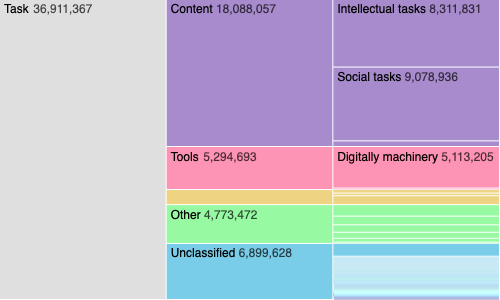Policy-makers and researchers are increasingly relying on online job advertisements (OJA) – also called “job postings” – as a new source of data to understand the dynamics of labour markets, the changing demand for skills and jobs. This type of data can provide an up-to-date picture of the skills that employers require, at higher detail than conventional surveys. The collection of reliable online job advertisement data is part of “Skills intelligence”, one of the actions of the European Skills Agenda.
In scientific research, OJA data is also increasingly used to understand the changing composition of tasks and skills of jobs over time, and infer the impact of automation and artificial intelligence on employment. In principle, this data could also be used monitor how the twin transition and other major trends are reshaping labour markets in the EU, by creating new occupations, making others vulnerable and changing the nature of existing jobs. However, the origin and processing of this data also presents statistical and analytical challenges.
The JRC analyses job advertisement data, assesses its reliability by comparing them to established data sources on tasks and skills, such as digital skills, and studies how employers advertise positions and express their skill needs.
Because OJA data is a new data source, we need to understand how representative and reliable they are: not all new jobs are advertised (online, or at all), so online data may provide a distorted picture of the labour market. Job advertisements are distinct from “job vacancies”, which denote unfilled positions that may or may not be publicly advertised, which are measured through surveys. By contrast, OJA are continuously collected from the internet, and encoded into structured dataset by encoding in terms of standard classifications, such as those for occupations, educational qualifications, and skills.
The JRC cooperates closely with Cedefop and Eurostat, the European Institutions collecting online job advertisements for the European Union through Skills-OVATE, as well as Lightcast, the leading global commercial provider for this type of data. JRC research also informs the development of ESCO, the European classification of occupations, skills, and qualifications, managed by the European Commission, used as the a reference taxonomy for the statistical analysis of online job advertisements.




